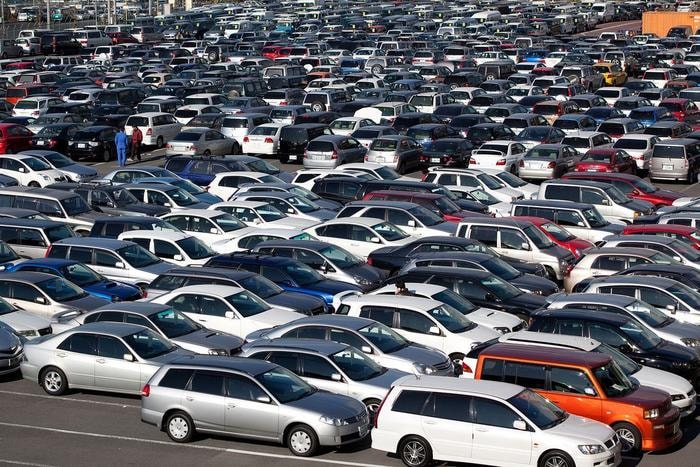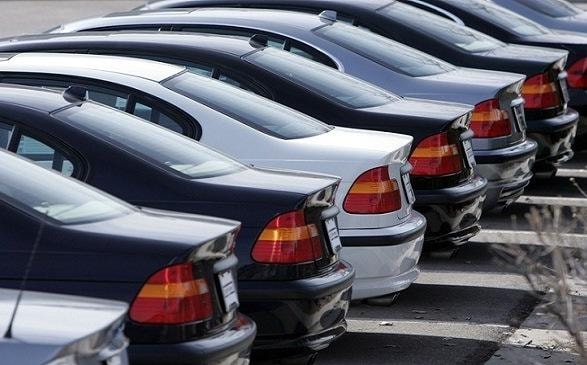0% tax, cheap cars still have difficulty entering Vietnam
A series of new regulations on car import business, effective from October 17, 2017, will prevent cheap imported cars from flooding into Vietnam.
Decree No. 116/2017/ND-CP, Regulations on conditions for production, assembly, import and business of automobile warranty and maintenance services, was signed by the Prime Minister on October 17, 2017 and took effect immediately.
Accordingly, the imported car business is subject to strict regulations, making it difficult for imported cars to flood into Vietnam, even if the import tax is 0%.
Strict regulations
To trade in imported cars, both new and used cars, businesses in Vietnam must have a written confirmation or document proving that the business is authorized to represent foreign car manufacturing and assembling businesses to recall imported cars in Vietnam. And must be consularly legalized by a Vietnamese diplomatic agency abroad.
 |
In addition, businesses that sell imported, unused cars must guarantee a 3-year or 100,000km warranty for customers. For used cars, it is 2 years or 50,000km.
In addition, imported unused cars must be inspected and tested by the quality management agency according to the regulations on technical safety and environmental protection for each imported batch. Each imported car batch must be sampled and tested for technical safety and environmental protection according to regulations.
When conducting testing, the automobile importing enterprise must provide a copy of the quality certificate of the imported automobile type issued by a competent foreign agency or organization. The original copy of the factory quality inspection certificate issued by the foreign automobile manufacturing and assembling enterprise for each automobile. Documents on the results of the assessment of the quality assurance conditions of the foreign automobile manufacturing and assembling enterprise, for factories producing imported automobile types, are still valid and issued by a competent foreign agency.
Imported cars have difficulty returning home.
According to automobile businesses, with these regulations, non-genuine imported cars, including new and used cars, will no longer be able to enter Vietnam. Because non-genuine importing businesses will not be able to “find” a confirmation document, or proof, authorized by the foreign manufacturer to carry out the recall of imported cars in Vietnam.
This condition is no different from the requirement that imported cars must have a genuine authorization certificate, as previously stipulated in Circular 20 of the Ministry of Industry and Trade, commented Mr. Nguyen Tuan, Director of Thien Phuc An Company Limited.
Not only that, it can be even more difficult. If any foreign car manufacturer does not agree to commit to recalling its products, even genuine car importers will not be able to import, according to Mr. Tuan.
The second thing that makes importing enterprises worried is the regulation that each imported shipment must have 1 vehicle tested, including emissions, brake durability, engine... According to enterprises, the cost of such testing is from 40-100 million VND/time and it takes from 2 weeks to 2 months to get the results.
 |
According to previous regulations, when importing, businesses only take 1 car as a sample for testing. Subsequent shipments of that model do not need to be tested again. But now, each imported shipment, the previous batch and the next, must undergo the same testing. Importing 1 car or 3 cars, all must be tested, which is both costly and time-consuming. If the number of imported cars is too large, there will be a long wait, so the cars cannot be sold immediately, and the storage costs will be very high. All of this is included in the cost price, making it difficult for the car price to decrease as expected.
However, what businesses are most concerned about is the regulation that, when conducting testing, they must provide a copy of the quality certificate of the imported car type, issued by a competent foreign agency or organization.
Mr. Pham Anh Tuan, Secretary of the Vietnam Automobile Manufacturers Association (VAMA), said that normally in other countries, competent authorities only issue quality certificates for cars sold domestically. Exported cars do not need this certificate. Currently, cars produced and assembled in Vietnam when exported do not need a registration agency or a quality certificate.
Many countries still let businesses take responsibility for product quality and do not issue quality certificates. If so, car importers can only buy cars sold in countries with quality standards similar to Vietnam's, then they can have this certificate. If a country circulates right-hand drive cars, then those cars cannot be imported to Vietnam.
It is very difficult to get this certificate, and Mr. Tuan is concerned whether the competent authorities of the countries exporting cars to Vietnam will issue it or not. Without a type approval certificate, imported cars to Vietnam will not be tested, which means they cannot go through customs clearance.
Some businesses are worried that the Decree signed on October 17 and taking effect immediately will cause many imported car shipments that have signed contracts and are on their way home to face difficulties and problems with the new regulations. They do not know how to resolve them.
According to businesses, with the new regulations, the car import business will face difficulties. Even if the import tax is 0%, foreign cars will have difficulty flooding into Vietnam. When the number of imported cars is not much and costs increase, prices will hardly decrease sharply.
According to VNN
| RELATED NEWS |
|---|

